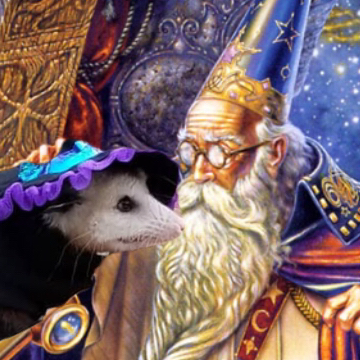I made this comparison a while ago, and figured I’d share it since I’ve seen some headlines going around the last couple days…
The Moon’s orbit isn’t a perfect circle, and at times is a little closer and a little farther away from Earth. It’s called a supermoon when the moon is full and at its closest point, and a micromoon when its full and at its furthest point
I wanted to make this comparison to highlight that the supermoon isn’t really that much larger than normal. Personally I think the supermoon is overhyped for what it is, and that it’s hard to tell visually that the moon is larger or smaller, unless you do a direct comparison like this. The moon can appear larger than normal when its close to the horizon, but the actual size of it is no different than if it was straight overhead: https://en.wikipedia.org/wiki/Moon_illusion
The angular diameters and distances were taken from a planetarium program called Stellarium. I compared the pixel measurements of my photos to the values calculated by Stellarium, and the discrepancy was only 0.22%.
-
TPO 6" F/4 Imaging Newtonian
-
ZWO ASI1600MM-Pro
-
Skywatcher Quattro Coma Corrector
-
ZWO EFW 8x1.25"/31mm
-
Astronomik LRGB+CLS Filters- 31mm
-
Moonlite Autofocuser
Acquisition: (Camera at Unity Gain, -20°C for supermoon, -10°C for micromoon)
-
Astronomik Red filter used to combat atmospheric seeing
-
Exposure- 0.213ms for supermoon, 1.115ms for micromoon
-
1000 frame capture for supermoon
-
2000 frame capture for micromoon
Capture Software:
- Captured using Sharpcap and N.I.N.A. for filterwheel and focuser control
Processing:
-
Supermoon: Best 10% of frames stacked in Autostakkert!3
-
Micromoon: Best 25% of frames stacked
-
Registax Wavelets for sharpening on both images
-
Level and curve adjustments in Photoshop
-
Images combined and annotated in Photoshop
it’s hard to tell visually that the moon is larger or smaller, unless you do a direct comparison like this
This is comparing the extremes of the size difference, too. It’s closer to only a 5% difference when comparing an average full moon to a supermoon.
5% or 10% bigger is a lot more than nothing. I’m more surprised that the difference is so much when saying it’s overhyped.
An 11% increase of something small is miniscule.
The actual apparent size difference between the minimum and maximum size of the moon is 1/15th of a single degree in the night sky.
And yet a 10% increase in the moons actual circumference would be a change of more than 1,000km.
Idk it’s a well known illusion that the moon can appear or “feel” bigger than it actually is when measured. Planetariums apparently project it larger (1degree instead of 0.5) in order to seem appropriate.
All that “science” every one knows, the moon is simply binging and purging!
-



